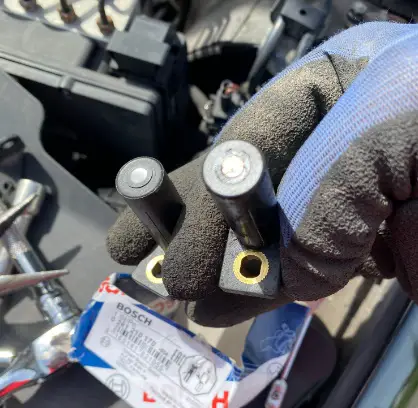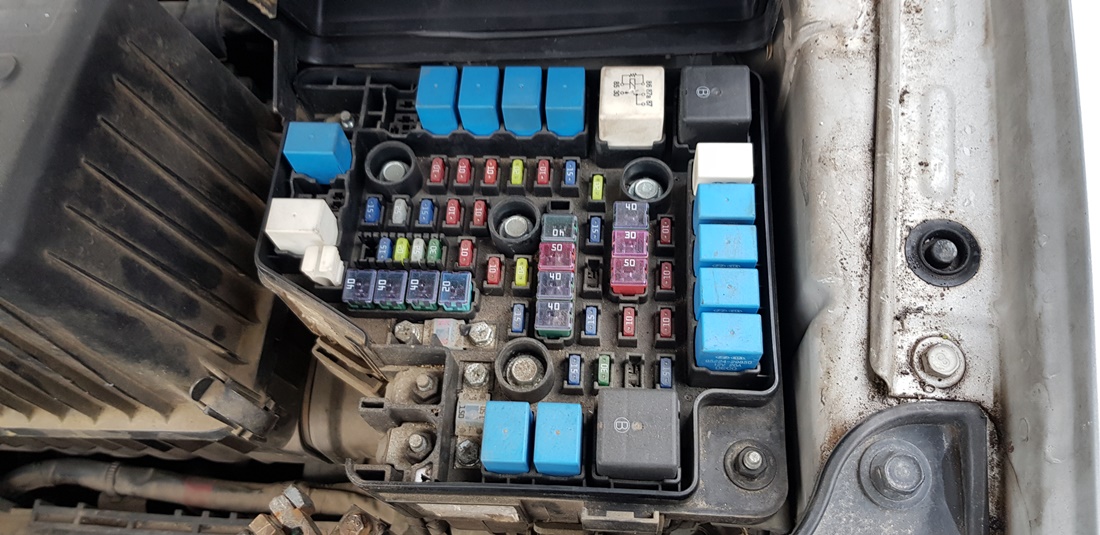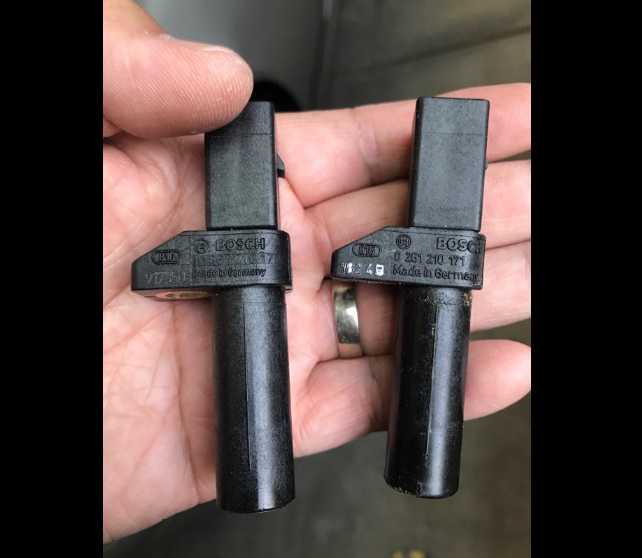If your car is emitting white smoke, there’s a good chance that the catalytic converter is malfunctioning. This component is responsible for converting toxic gases into less harmful emissions, so if it’s not working properly, your car will produce white smoke.
In this blog post, we’ll explain what causes a catalytic converter to fail and how you can fix it. We’ll also cover the signs that indicate that you need a new catalytic converter.
- Key Takeaway
- What Is Catalytic Converter In Cars
- Can Catalytic Converter Cause White Smoke?
- Can a Catalytic Converter Unclog Itself?
- Why Is My Exhaust Smoking White But Not Overheating?
- FAQs
- Q: What are some symptoms of a bad catalytic converter?
- Q: How does a catalytic converter work?
- Q: What are the main causes of catalytic converter failure?
- Q: Can a bad catalytic converter cause loss of power?
- Q: How can I diagnose a faulty catalytic converter?
- Q: Can I drive with a bad catalytic converter?
- Q: Can a catalytic converter be cleaned or repaired?
- Q: Can I remove my catalytic converter to improve performance?
- Q: How much does it cost to replace a catalytic converter?
- In Conclusion
Key Takeaway
- A clogged or faulty catalytic converter can cause white smoke to emanate from the exhaust, typically due to it being unable to efficiently process and eliminate byproducts from the engine’s combustion process.
- A catalytic converter is a vehicle emission control device that converts harmful pollutants emitted from a car’s combustion engine into less harmful substances before they leave the car’s exhaust system.
What Is Catalytic Converter In Cars
A catalytic converter is a critical component of a car’s exhaust system designed to reduce harmful emissions produced by the combustion process within the engine.
It accomplishes this by facilitating chemical reactions that convert harmful gases into less harmful substances.
Specifically, it transforms carbon monoxide (a poisonous gas) into carbon dioxide, converts nitrogen oxides (which contribute to smog and acid rain) into nitrogen and oxygen, and turns unburned hydrocarbons (which can be carcinogenic) into carbon dioxide and water.
The catalytic converter is typically located between the engine and the muffler, and while it plays no role in the car’s drivability, its environmental impact is significant.
Can Catalytic Converter Cause White Smoke?

Yes, a catalytic converter can cause white smoke if it is clogged or malfunctioning. This occurs because the converter is unable to efficiently process and eliminate byproducts from the engine’s combustion process, causing white smoke to come out of the exhaust.
If you have ever noticed white smoke coming from your car’s exhaust, it could be due to a problem with your catalytic converter. The catalytic converter is an important part of your car’s emissions system. If it isn’t working properly, it can cause all sorts of problems.
The catalytic converter is responsible for converting harmful pollutants in your car’s exhaust into less harmful substances. It does this by using a chemical reaction to break down the pollutants into simpler molecules.
If the catalytic converter isn’t working properly, it can no longer effectively break down the pollutants and they will build up in the exhaust system and eventually be released into the atmosphere as white smoke.
There are a few different things that can cause your catalytic converter to stop working properly. One is a build-up of carbon deposits on the catalyst itself.
This can happen if you don’t regularly maintain your car or if you drive it hard for long periods of time. Another possibility is that the converter isn’t getting enough airflow, which can happen if your car’s muffler is clogged.
White smoke from your car’s exhaust is definitely a cause for concern. If you notice white smoke coming from your car’s tailpipe, it’s time to take it to a mechanic and have them take a look. Some mechanics even suggest that you need to shut down the engine immediately and tow your car to the mechanics.
Can a Catalytic Converter Unclog Itself?

Yes, a catalytic converter can unclog itself under certain circumstances, particularly when it reaches operating temperatures and is exposed to high-quality catalytic converter cleaner or sustained high RPMs during driving, although some manual action may be required.
However, it’s important to note that some action on your part may still be required. For instance, driving at sustained high speeds might help in the unclogging process.
That being said, if the clogging is severe, it might not be possible for the converter to unclog itself completely and replacement might be necessary.
It’s also important to remember that this self-cleaning process might not apply to all types of clogs and converters.
Why Is My Exhaust Smoking White But Not Overheating?

Overheating generally means that your coolant temperature is getting too high. This can be caused by a number of things, such as a radiator leak, a water pump failure, or a thermostat stuck in a closed position. Now let’s talk about why your exhaust might be smoking white but not overheating.
1. Oil is leaking into your engine

When oil leaks into the combustion chamber, it gets burned along with the fuel. This causes the white smoke that you see coming out of your car’s tailpipe. In addition to this, oil leaking into the engine can also cause a misfire. If you notice your car is producing white smoke and running less efficiently, it’s time for a trip to the mechanic.
The trick question here is how can an engine produce white smoke due to oil leaking but not overheating. Well, vehicles hold a different amount of oil but most of them average about 5 quarts of engine oil.
When your engine starts burning oil, it will not burn all of the oil at one time. So, when the oil starts to leak into the engine, it will start by burning an insignificant amount of oil enough to cause white smoke from the tailpipe, but not to cause the engine to overheat.
However, if you let the leakage continue for an extended period of time without topping off the oil, the engine will eventually overheat because there will be no oil left in the engine to lubricate the moving parts and remove the heat that they cause.
2. Your car is burning coolant

Without coolant, your car would overheat and break down. Coolant helps to regulate the temperature of your engine, keeping it from overheating. It does this by absorbing heat from the engine and transferring it to the air. This process keeps your engine at a consistent temperature, even when it’s working hard.
Coolant also protects your engine from corrosion. Over time, water can cause metal parts to rust and degrade. Adding coolant to the water helps to prevent this by creating a barrier between the water and the metal.
If you see white smoke coming from your car’s exhaust, it could be an indication that the engine is burning coolant. Coolant is a mixture of water and antifreeze, and it helps keep your engine at the optimal operating temperature.
If there’s a leak in the system, or if the coolant level gets too low, it can cause the engine to overheat and start to burn the coolant. This will usually result in a sweet-smelling smoke that’s visible when the car is first started up.
The overheating will not occur immediately and will depend on how much coolant is your engine burning. Usually, the leak will be small and it will take some time for you to notice that your car is losing coolant says VehicleFreak.
3. The catalytic converter is clogged

When your car’s catalytic converter becomes clogged, it can cause white smoke to come out of the exhaust. This is because the converter is not able to properly convert the exhaust gases into less harmful substances. As a result, these gases build up in the engine and are eventually released through the exhaust system.
If you notice white smoke coming from your car’s exhaust, it is important to have the problem diagnosed and repaired as soon as possible.
A clogged catalytic converter can lead to serious engine problems if it is not fixed. If you have any questions about your car’s catalytic converter or how to fix a clogged one, be sure to ask your mechanic.
FAQs
Q: What are some symptoms of a bad catalytic converter?
A: Some common symptoms of a failing catalytic converter include reduced engine performance, increased fuel consumption, a rotten egg smell, and the presence of white, blue, or black smoke coming from the exhaust.
Q: How does a catalytic converter work?
A: A catalytic converter works by using a catalyst to convert harmful pollutants in the exhaust gases into less harmful substances through chemical reactions. It primarily targets nitrogen oxides, carbon monoxide, and hydrocarbons, and turns them into nitrogen, carbon dioxide, and water vapor.
Q: What are the main causes of catalytic converter failure?
A: The main causes of catalytic converter failure are engine misfires, fuel contamination, excessive oil consumption, physical damage to the converter, and the aging of internal catalyst materials.
Q: Can a bad catalytic converter cause loss of power?
A: Yes, a failing or clogged catalytic converter can result in a loss of engine power. This is because the back pressure created by a restricted converter can prevent the effective expulsion of exhaust gases from the engine.
Q: How can I diagnose a faulty catalytic converter?
A: To diagnose a faulty catalytic converter, you can perform a visual inspection for physical damage, use diagnostic tools to check for error codes related to the converter, conduct back pressure tests, and analyze emissions using an exhaust gas analyzer.
Q: Can I drive with a bad catalytic converter?
A: While it is possible to drive with a faulty catalytic converter, it is not recommended. A malfunctioning converter can lead to decreased engine performance, increased fuel consumption, and potential damage to other components such as the oxygen sensors and spark plugs.
Q: Can a catalytic converter be cleaned or repaired?
A: In some cases, a catalytic converter can be cleaned or repaired to restore its functionality. However, this is not always possible, and in many cases, a replacement may be necessary.
Q: Can I remove my catalytic converter to improve performance?
A: It is illegal in many countries to remove or tamper with the catalytic converter as it is part of the vehicle’s emission control system. Removing the catalytic converter can also lead to increased pollution and may void your vehicle’s warranty.
Q: How much does it cost to replace a catalytic converter?
A: The cost of replacing a catalytic converter can vary depending on the make and model of the vehicle, as well as the location and labor charges. On average, the cost can range from $500 to $2,500.
In Conclusion
In conclusion, a malfunctioning catalytic converter can cause white smoke to be expelled from your car’s exhaust.
This happens when antifreeze or oil enters the exhaust system and is burned off, often due to a leaking head gasket or other engine issues.
The white smoke is an indication that these substances are not being properly converted into less harmful emissions by the catalytic converter.




